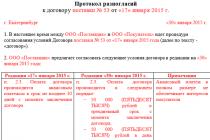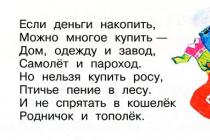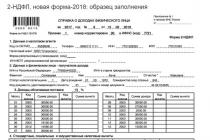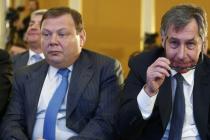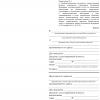Often you can hear from others: money is far from in the first place, and indeed, money is evil and happiness is not in them. What is the role of money in human life? Is it so important financial success? Many people live their whole lives content with what they have, without striving for any financial heights.
Yes, the money itself is not that important. Much more valuable are the opportunities that they give us. And the most important possibility is FREEDOM.
But what kind of freedom does money give?
The first and most obvious is financial freedom. With enough money, you can afford to do what you love. Work not because you have to do it for the sake of survival, but because you love what you do and enjoy it. When a person ceases to be a slave to a salary, this gives much more opportunities - you can afford to take more risks, set really serious and ambitious goals, live in abundance, realize yourself.
This lifestyle brings other joys, you become a happier and more satisfied person. Only by being in harmony with what you are doing, you can achieve real happiness in life.

The second is freedom in time that comes after achieving financial freedom. "Cause time, fun - hour" - this is the role of by no means free people. And not because they don't work, no. They just enjoy the work, it becomes a hobby for them, bringing both pleasure and money.
Freedom of time means that you can always afford to take a break, disconnecting from current affairs for any amount of time. Your income continues to grow and work for you, no matter where, how and what you do. A free person is free to choose his own schedule of life and work.
The third thing that can be achieved by gaining financial freedom and freedom of time is freedom of relationships. With enough time and money, we can enjoy socializing with family, friends, and loved ones. These days, few people can afford to devote most of their lives to the family - the need to run and earn money is too strong.
For most people, the opportunity to make relationships with loved ones and friends really complete, tender, meaningful and rich is closed. But all this is available to a free person.

The same applies to spiritual freedom- having enough time and money, we can afford to fully engage in our own spiritual development. Understand ourselves, the world, the issues that concern us. Spiritual development is an important component of any modern and successful person. Without it, it is impossible to achieve harmony, joy and happiness in life.
And, of course, do not forget about physical freedom. Truly - in a healthy body, a healthy mind. It is still desirable to have enough time for playing sports. Many very interesting and exciting activities require cash investments. It's about quality food. medical services, the need to take care of yourself and other essential attributes of a healthy life - almost all of this takes time and money.
Here are the top reasons to value financial freedom.
So once again ask yourself: “Is the role of money in a person’s life really important?”
I am sure that now there is only one answer to this question - YES!
2. The role of finance in human life. A person constantly has to make financial decisions, on the literacy of which his success and financial well-being depend. Wrong decisions turn into significant financial losses. Financial decisions are made at all levels, from the housewife to the minister. Here are just a few: The family decided to save some of the funds and keep them in a bank account. Wouldn't it be better to invest in investment fund or give it to a trustee or buy shares? And if you buy shares, then which ones: Gazprom, LUKOIL, Sberbank? A person decided to buy a car, but there is not enough money to buy it. You can borrow the rest of the money. Or maybe it’s better to postpone the purchase, place free money on financial market and after receiving additional income buy a car without going into debt? A student studying at the university works as a waiter in a restaurant and after graduation decides to open his own restaurant. But how much money will be required for this and where to get the money for it? A farmer approaches a bank employee with a request to provide a loan for the purchase of agricultural machinery. How will a bank employee be guided in determining the appropriateness of a loan and the amount of interest?
Slide 12 from the presentation financial economics»Dimensions: 720 x 540 pixels, format: .jpg. To download a slide for free to use in a lesson, right-click on the image and click "Save Image As...". You can download the entire presentation "Financial Economics.ppt" in a 733 KB zip archive.
Financial system
Microfinance - more general concept, which also includes micro-insurance, a savings system, etc. The Aga Khan Microfinance Agency (eng. Pension funds are important shareholders in public and private companies. Pension fund (eng. But according to the Law on Pawnshops, storage is separate service and counted separately.
"The financial system of the Russian Federation" - Problems and ways of developing the financial system of the Russian Federation. List of European scientists. Financial system RF. Discussion questions of the composition and structure of the financial system of the Russian Federation. The reign of Alexander II. State insurance. Historical aspects of the development of finance. The financial system of Russia. Separation of insurance.
"Financial sphere" - Stabilizing influence. According to F. Knight, “we live in a world subject to change, in the realm of uncertainty”, which applies both to economic and to all other types of human activity. Economists around the world unanimously note that the financial sector is coming to the fore in comparison with the traditional material production and occupies a leading position in social reproduction.
"Financial system" - Conclusions (1). central bank. Goals monetary policy. Refinancing rate. Commercial Bank. Edmund Phelps. Chapter 4. Economy of the state. Conclusions (2). Other financial institutions. Insurance organizations. Multiplier. Non-state pension funds(NPF) - form non-profit organization social security.
"Financial Structure of the State" - Institute of the General Part financial law. Banking link. Target link off-budget funds. Management in the field of finance. Legal foundations of the financial structure of the state. managing entity. The mechanism operates on legal basis. The concept of a financial device. Competences of state bodies.
The role of finance in the economic life of modern society can hardly be overestimated. Finance:
They ensure the circulation of material resources, goods, services, and thereby the continuity of the process of reproduction of production and the life of society, both at the macro and micro levels.
Ensure the progressive development of the national economy of the state, in particular the creation. GDP, the formation of centralized state funds
Provide redistribution national income through the budget and through other centralized funds to ensure the livelihoods of low-income groups of the population, purchases by the state public goods and services r (indivisible benefits) of defense, educational, environmental, research nature lean.
Carry out the distribution and redistribution of primary and secondary income between industries, regions, social strata of the population, individual legal and individuals in favor of those that are economically more efficient.
Take an active part in supporting production process, providing it with the necessary components at each of its stages, controlling efficient use resources, labor
Provides the opportunity to implement various kinds effective economic activity by mobilizing monetary resources as a result of using financial instruments(for example, the issuance of securities) and ensure the optimal distribution of mobilized resources.
Allow to provide an effective owner of production assets by grinding production assets and their "smooth" flow from one owner (owners) to another
form a system financial indicators, which play the role of indicators of the state and development of economic and social spheres society and allow you to determine the "health" of the economy
Provide an opportunity to check compliance with legislation on financial matters, timeliness and completeness of implementation financial obligations before the budget tax authorities, banks, as well as ensuring the settlement of mutual settlements of business structures.
Tasks for practical classes and independent work of the student
Subjects of scientific works:
1. Finance as a science, the objective need for finance
2. Public library
| name. Lesya Ukrainian, Kiev
2. The relationship of concepts: finance and money, finance and prices, finance and wage, finance and credit
3. Human life as a social chain of financial relations
4. Which indicator is the criterion standard of living population?
5. The role of financial instruments in boosting market transformations
. Test #1
The term originally meant:
a) tax payments;
b) the obligatory payment of a citizen to the ruler of the country;
in) economic relations;
. Test #2
Formation of flows of material resources in national economy be sure to su wadjuvatsya:
a) the emergence of social relations;
b) the formation of labor flows;
c) opposite direction Money;
d) increased spending on social protection population
. Test #3
State centralized and decentralized funds are created in the form of:
a) budgets of different levels and trust funds;
b) trust funds and enterprise funds;
c) state and local budgets;
G) state budget, local budgets and enterprise funds . Test #4
The "distributive concept" of finance does not take into account:
a) norms of financial law;
b) the factor of cash flow in time;
c) economic relations between subjects of finance;
d) economic relations at the micro level
. Test #5
Households offer on the resource market:
a) financial resources;
b) goods and services;
c) manufactured products;
d) material, intellectual, labor resources
. Test #6
Financial intermediaries do not include:
a) insurance companies
b) households;
c) commercial banks;
. Test #7
The essence of the distributive function of finance is that finance is a tool:
a) distribution of economic risks between entities entrepreneurial activity;
b) distributions. GDP and national wealth;
c) distribution of limited material resources;
d) distribution of social benefits among vulnerable segments of the population
. Test #8
Verification of compliance with the legislation on financial matters, the feasibility of spending and economic efficiency subject economic activity belongs. PO) control function of finance;
b) distributive function of finance;
c) the organizational function of finance;
d) the regulatory function of finance
. Test #9
At the level of business entities, the following is not created:
a) reserve fund;
b) depreciation fund;
c) a pension fund;
d) dividend payout fund
. Test #10
Subject financial sphere is not:
b) population;
c) centralized funds of financial resources;
d) enterprises
IV. The following statements are correct or incorrect:
1. Lending is the provision of funds on the principles of payment, urgency, security and focus
2. Funding is the provision of funds on a non-repayable basis
3. Finance is a broader concept than wages
4. The difference between credit and finance is that finance is distributed. GDP, and the loan is valid only at the stage of redistribution of temporarily free funds
5. A firm's finances are its cash
6. An enterprise can be financially stable and have little money in the current account
7. An enterprise that takes out a loan is financially unstable
8. There may be such a situation at the enterprise: there is no money in the bank account, but there is profit
9. In a crisis financial situation in the country's economy, the object of finance is. GDP
10. Competition between producers increases financial resources
Send your good work in the knowledge base is simple. Use the form below
Students, graduate students, young scientists who use the knowledge base in their studies and work will be very grateful to you.
FEDERAL AGENCY FOR EDUCATION
KAZAN STATE FINANCIAL AND ECONOMIC INSTITUTE
Department of money and securities
ECONOMIC ESSAY
in the discipline "Finance and Credit"
on the topic "The role of money in my life"
Completed by a student
Checked by teacher:
Safina L.M.
Kazan - 2007
The role of money in my life
It would seem that every person from childhood knows what money is, why they are needed and what role they play in the economy and life. Meanwhile, exhaustively answer the question "What is money?" not only people who are far from economics but also prominent economists. For some, money is just pieces of paper, for some it is what all human actions are aimed at, and for some money is the meaning of life!
Opening textbooks on economics and even classical works of world-famous scientists, an inquisitive student of economics will notice that the higher the status of the author in economic science, the less inclined he is to give an accurate, exhaustive definition of this undoubtedly cornerstone of economic concept.
Moreover, one should pay tribute to the courage of the luminaries of economic science, who dare to define such things as: “Money is what it really is”, “Money is what it does”, “Money is not what already exists in nature, but what we give a numerical value with the help of a conditional procedure”, “Money is a temporary container of purchasing power”. Adam Smith spoke in an original way about money, emphasizing that we use money by getting rid of it, i.e. this is a universal kind of thing that a person is able to use only by giving it to other people, while other types of things are used by people through acquisition, appropriation.
Most often, the essence of money is characterized by listing the functions they perform.
From these positions, in most textbooks on economics and finance, money is defined as any commodity that represents a means of circulation (payment for other goods and services), a unit of account (measurement of value) and a means of preserving (accumulating) wealth. Sometimes not three, but as many as five functions are attributed to money: means of circulation (exchange), means of payment, means of accumulation, measures of value, measures of deferred payments. In a number of cases, money is credited with yet another function, or rather, the role of world money. Raizberg B.A. -Course of Economics. Textbook.
Money in its development appeared in two forms: real money and signs of value (substitutes for real money).
Real money is money that has nominal value(the value indicated on them) corresponds to the real value, i.e. the value of the metal from which they are made. Metal money (copper, silver, gold) had a different form, first piece, then by weight. The coin of the later development of monetary circulation had statutory features (appearance, weight content). The most convenient for circulation turned out to be the round shape of the coin (it was less erased), the front side of which was called the obverse, the back - the reverse and the edge - the edge. In order to prevent the coin from spoiling, the edge was made rifled. Vidyapin V.I. -Bachelor of Economics. Volume 3
Money acts as a special material object in different civil legal relations. They are the main object of legal relations in loan agreements(loan agreements), settlements (cash and non-cash). Money can also act as a consideration in most contracts.
Money is fungible and divisible things, their dignity depends on the value of the monetary units indicated on them. As a general equivalent, they can replace any other thing and are used to evaluate some intangible goods. Andreev V.K., -Legal regulation entrepreneurial activity.
The emergence of money. AT economic literature mainly two concepts of the origin of money are considered: rationalistic and evolutionary. The first concept was put forward by Aristotle in his work "Nicomachean Ethics". It dominated until the end of the 18th century. and explained the origin of money as the result of an agreement between people. Some modern economists (J.K. Galbraith, P. Samuelson and others) interpret money in a similar way. The evolutionary concept explains the origin of money as a product of the development of commodity production and the process of exchange. The most consistent supporter of this concept was K. Marx, who pointed out that value is created by abstract labor, but it cannot be detected in a product even with a microscope. As a social property of a commodity, value can be revealed only by equating one commodity to another in the process of exchange, i.e. as an exchange value.
Essence of money. Money is a special commodity that performs the role of a universal equivalent. There is also a definition of money in the literature as a way of public expression of the economic value of a good. It is an absolutely liquid medium of exchange, i.e. product with the highest marketability. A liquid commodity means an easily marketable commodity. Money is one of the most significant components in the economic life of society. As emphasized by K.R. McConnell and S. L. Brew in Economics, money bewitches people. Because of them they suffer, for them they work. They are welcome! there are the most skillful ways of obtaining them, the most skillful ways of applying them. Money is the only commodity that cannot be used except to get rid of it. They won't feed, clothe, shelter, or entertain you until you spend or invest them. People will do almost everything for money, and money will do almost everything for people. Money is a captivating, repetitive, mask-shifting riddle.
Historically, it so happened that gradually the function of the universal equivalent began to be performed by metals and by no means immediately by gold. Sparta had iron money, Rome had copper money. For many centuries, silver acted as a universal equivalent, and it did not immediately give way to gold. For a long time this role in the countries of Western Europe was played simultaneously by gold and silver. With late XIX in. only gold began to act as a universal equivalent, and from that moment begins and monetary form cost.
Gold plays the role of money because it has a number of advantages compared to other commodities: divisibility, storability, qualitative uniformity, portability (high cost with a small volume), its relative rarity in nature, wear resistance, which allows using money for a long time, genuineness , which consists in the complexity of making counterfeit money. Bazylev N.I., Gurko S.P. - Economic theory
Entrepreneurs in their business activities are constantly dealing with monetary units own country and foreign countries. Money is a historical category inherent in commodity production. Before the advent of money, exchange in kind took place.
The oldest types of money include goods that were used daily and served as a general equivalent in exchange: food (cattle, salt, tea, grain, rice, etc.), fur (skins of fur animals), tools (hoes, axes, knives, shovels), jewelry (rings, bracelets, chains). Gradually, the role of money passed to metals, first in the form of ingots of various shapes, and from the 7th century. BC. - in the form of minted coins. Before capitalism, the role of money was played by copper, bronze, silver, and in some countries (in Assyria and Egypt) even in antiquity (two millennia BC) - gold. With the development of commodity production, gold and silver became money commodities.
We are more familiar with paper money. They first appeared in China in 812. The earliest banknotes in the world were issued in Stockholm in 1661. In Russia, paper money (banknotes) was first introduced under Catherine II (1769).
Honore de Balzac said that "money is the sixth sense that allows us to enjoy the other five." Economists define them more strictly and dryly. A. Smith called money "the wheel of circulation", K. Marx - "universal equivalent". Bulatov A.S. -Economy
Metal theory of money. One of the earliest theories of money is the metal theory of money. The representatives of early metalism were the English mercantilists: William Stafford (XVI century), Thomas Maine (VXII century) and the Italian mercantilist Galliani (VXIII century).
The emergence of the metal theory is associated with the emergence of mercantilism. Mercantilism - flow economic thought, which considered the accumulation of money the main source of wealth of society and insisted on the development of trade.
The ideas of mercantilism were especially developed in the 16th century. and the 17th century, when the development of manufactories and commercial capital acquires great importance in the economy of Western countries. The accumulation of money and precious metals was then the main goal of trade and served as the most important prerequisite for the development of industry, trade, and the accumulation of funds in the country.
Metal theory proceeded from the basic position of mercantilism that gold and silver are the only kind of wealth. Hence follows the assertion that gold and silver are the only kind of money. Based on incorrect ideas about the essence of money and not understanding the laws of money circulation, metalworkers developed fetishistic views on money. They argued that gold and silver are money by nature, that they are money by virtue of the natural properties of the metal. Accordingly, they assigned these precious metals the function of carriers of social relations.
The metalworkers confused the simple exchange of commodities with the circulation of commodities. That is why they did not single out such functions of money as a means of payment and a means of circulation. They believed that money performs only two functions: a measure of value and a store of value. In this regard, metalworkers denied the replacement of gold with any other signs of money. They generally considered paper money to be something unnatural.
It can be seen from the above that metalworkers did not try to understand the laws of money circulation, but only tried to understand their essence.
nominalistic theory of money. The essence of the nominalist theory is the assertion that money has no value of its own and is a purely conditional abstract unit, a simple label and counting mark established by the state. Supporters of this theory believed that money has no internal connection with goods and receives its power from the state. Views close to nominalists were expressed by ancient philosophers: - Plato and Aristotle.
Money, - said Aristotle, - arose not from nature, but by law. They are a conventionally recognized means of measuring the value of a good.
The further development of nominalistic views on money was associated with the widespread practice of counterfeiting coins. This was the case in the Middle Ages, when jurists justified the falsification of coins by arguing that the value of money and money itself is wholly the creation of state power.
The views of nominalistic theory in the 17th century. developed by English economists: Nicholas Barbon, George Berkeley. A detailed substantiation of the nominalistic theory of money is given by the German professor Knappp, who considered all the phenomena of economic life as legal. He denied the existence of objective economic laws. economic laws, in his opinion, are set arbitrarily by the will of the people. Everybody economic categories, including money, Knapp considers as a product of law, a product of state activity. That is why Knapp calls his theory of money the State Theory of Money.
The main fallacy of the nominalists is the denial of the connection between money and goods.
Nominal money has only one form of function - a means of payment. Money is just tokens of account. According to Knapp, the money is similar to the number of the theater hanger. The only difference is that when we show the number, we get a coat, and when we show money, we get goods in exchange for them. If he further draws an analogy with a theatrical number, then it, like money, contains some legal meaning - the right to receive a certain thing (a coat or some other product).
It becomes clear that the nominalist theory of money is idealistic. It replaces the laws of the functioning of the economy with certain legal regulations and denies the connection of money with social and productive relations.
Quantity theory of money. Today it is the most common in terms of its application in practice.
The quantitative theory of money reduces the essence of money to one single function - the function of a medium of circulation. Being a medium of exchange, money, according to the supporters of the quantity theory, cannot have an intrinsic value. Their value is determined by their quantity.
The quantitative theory received its substantiation and development in England at a time when freedom of trade became the main requirement of industrial capital and, in general, the further development of the country's economy.
Vivid representatives of this concept of money are: Montesquieu, Hume, Ricardo. The main points of these economists were as follows:
1. Commodity prices are not determined by the intrinsic value inherent in commodities, but by the ratio between the total quantity of a commodity and the total mass of gold and silver available throughout the world (Montesquieu);
2. The prices of commodities and the value of money are determined not so much by the absolute quantity of commodities and money as by their quantity in circulation. Hume substantiated his position by the increase in prices for commodities that took place at that time. However, he established a false causal relationship between an increase in the mass of gold and an increase in commodity prices. Meanwhile, the real cause of the rise in prices was the increase in productivity in the gold mining industry and the discovery of new gold mines in America. (Hume);
3. the amount of money is primary, and the value of gold depends on its amount, that the value of gold decreases due to the increase in the amount of gold (Ricardo);
So, the essence of the quantity theory is the assertion that the value of money, whether gold or paper money, depends solely on the amount of money.
The place of Keynes's views in this theory seems interesting. Keynes and his adherents adhere to both the quantitative and the nominalistic concept of money. Keynes believes that the direct quantitative relationship between money and the mass of commodities is only a phenomenon of equilibrium. In practice, this thesis leads to the assertion that conjuncture can be completely mastered. For this, a recipe is offered: regulate the terms of credit and there will be neither booms nor crises. In order to maintain balance, it is necessary to manage not only money circulation, but also cash income. Also, in the interests of equilibrium, it is necessary to strictly limit wages.
What role does money play in our life? What is holding most people back from living the life they dreamed of? Money. It is no coincidence that money is present in our lives. They allow you to have a greater degree of freedom of choice, and also - this is a kind of symbol of abundance by which we are judged.
However, the importance of money should not be overestimated. When is money really important? When they are missing. For those who have financial difficulties, all thoughts are occupied with money. This problem should one day be thoroughly dealt with in order to properly handle money. Money should become servants, not masters in our lives.
The role of money is interesting - to provide for our current needs. Money brings comfort. They are the equivalent of our utility to society
Psychologists distinguish three types of people:
1. those who want and earn money;
2. those who deny the need for money, because they do not know how to earn it;
3. and, finally, those who put up with the lack of money, believing that this is not the most important thing in life.
It is difficult to refute the fact that money is necessary for each of us. It's stupid to argue with this. No money - no life. Money gives food, clothing, housing, warmth, light, pleasure, travel, entertainment, power and confidence in the future. What value can be put next to it? Almost nothing.
The main thing that money gives is freedom (freedom of choice, freedom of movement). If you want, you can work where you like, and not where you NEED (because of the money). If you don't want to, you may not work at all. Money doesn't matter when it's there! And this is for everyone ... Money, in our time, is necessary like air.
Having money is a sign of a successful man. Material security, the availability of housing is very important when choosing a life partner, when creating a family. While we girls hate to admit it, money matters in a relationship. After all, if a man does not have money, he does not feel confident, begins to complex, hence jealousy and then the relationship turns into a showdown. Lack of money in the family gives rise to misunderstanding, conflict, harmony is broken. And living in a hut is also unpleasant. And not everyone will agree to this. I think girls are looking for potential husbands mainly according to the criterion of security, will he be able to support his family after marriage, will he provide the desired conditions for living ?!
A poor person, in order to achieve prosperity, to amass wealth, will destroy, “rob”, ruin others. And a person who has everything, he does not need anything, does not know the need for money, will create, strive for beauty, because he does not know troubles and does not know that money can be evil. Money is valued by those who do not have it. I believe that only when all people live in abundance, fully satisfy their needs, the world will become “kind” and “beautiful”.
How much money do you need to be happy?
So much so as not to worry about the lack of money and not to wonder about the structure of free money - to live in monetary balance.
Application
Withlist of used literature
1. Raizberg B.A. -Course of Economics. Textbook. - M: INFA-M., 2003
2. Vidyapin V.I. -Bachelor of Economics. Volume 3. - M: Triad., 1999
3. Andreev VK, - Legal regulation of entrepreneurial activity - M: Accounting., 1996.
4. Bazylev N.I., Gurko S.P. - Economic theory. - Minsk: Ecoperspective., 2004.
5. Bulatov A.S. - Economics. - M: Jurist., 2002.
Similar Documents
The concept of money and the need for their appearance, the content of the phylogenetic concept of the evolution of money. Characteristics of the theories of money: metalistic theory, nominalistic, quantitative theory. Relationships between the concept of value and its measure of measurement.
term paper, added 12/21/2010
The essence of money, their role, origin, meaning. The main functions of money, their forms and types. Quantitative, metallic, nominalistic and specific theories of money. Limitations of the dogma of the quantity theory of money. Dogmatism of monetary authorities.
term paper, added 12/23/2012
Consideration of the origin and evolution of money. Disclosure of the essence of metalistic, nominalistic, quantitative, Marxist, neoclassical and Keynesian theories. The study of the importance of money in the world and in the life of each individual subject.
term paper, added 10/31/2014
Types of money: real money and tokens of value, substitutes for real money. The emergence and development of paper and credit money. Variety, purpose and feature of credit money: promissory note, banknote, check, electronic money, credit cards.
abstract, added 11/29/2010
The emergence and development of money. The main theories of the origin of money. Characteristics of the main types of money and their use in economic circulation. Analysis of the use of money in the economic turnover of Russia. Problems with the use of money.
term paper, added 01/14/2009
The essence of money as the universal equivalent of value. Consistent description of the evolution of money in the process of historical development. Identification of the content of the category of money through its functions and their relationships. The role of money in the economy and the life of every person.
term paper, added 09/03/2011
The concept, functions of money and the history of their appearance. The emergence and development of the quantity theory of money. Friedman's Quantity Theory of Money. Essence of the quantity theory of money. Two varieties of the quantity theory of money, modern monetarism.
term paper, added 07/05/2010
Founders and main provisions of the quantitative theory of money. Features of the monetarist version of the quantitative theory. I. Fischer's contribution to the modernization of this theory. Mathematical substantiation of the quantity theory of money using the "equation of exchange".
presentation, added 10/09/2016
Rationalistic and evolutionary-historical concepts of the origin of money. Stages of development of money. Metallic, nominalistic and quantitative theories. Properties of money as a commodity consumer value. The main components of the monetary system.
presentation, added 12/14/2011
Real money and tokens of value (substitutes). Reasons for the appearance of signs of value in gold circulation. emergence electronic money. The value of credit money as a reflection of the value of the mass of commodities. Prospects for the development of electronic money.
People have always wondered what the role of money in human life? For some, money simply provides life comfort and makes it possible to buy goods for life, others see it as an opportunity to fulfill their dream, others perceive it as.
Every person has domestic needs. Everyone wants to eat delicious food, buy fashionable things, have functional and beautiful household items. In a word, all people strive for home coziness and comfort. And money is needed for comfort in everyday life. Different amounts are enough for different people, but the value of money at this level is indisputable.
Often people have a certain dream. For example, a tour to an exotic country, a trip to places of interest abroad, a romantic cruise in the Mediterranean, and so on. All of this can be done with money. People usually begin to think about such things if they have already achieved life comfort and are confident in the future.
It also happens that it is not enough for a person to fulfill his dreams, he wants to “make happy” other, strangers. Such people decide to open their own business, thus creating new jobs.
Money for the business organizer himself is becoming not just a means to achieve a dream or home comfort, it is now a means of influencing people, their needs. And this is the right idea for business - responsibility to other people.
Money has another meaning - taxes. All citizens of the country pay taxes, they can do it both directly and indirectly. Direct taxes are deducted from profit or income. As for indirect ones, to put it briefly, a small part of each ruble spent goes to the treasury.
Money collected tax services are sent to the budgets of different levels. These funds are spent on various needs: the construction of roads, salaries to workers public sector, on pension payments, allowances and more.
In this case, money is the most important component of the existence of many institutions and institutions of the state. Such the role of money in human life can be called social.
Separately, it is necessary to consider the state budget. This huge "piggy bank" collects taxes from every employed person living in this state. This money is used to finance an important component of the country - the army. That is, another role of money can be called the protection of the state and its citizens. Although, of course, this role is very connected with the politics of the people who are in power.

So for ordinary people money is just a means by which you can get the right goods or services. But on the other hand, money for more high level determine the safety of people, their way of life. But this is how they will work only in a strong state capable of protecting its own interests and the interests of business and citizens.
That is, money is not just paper, but a kind of idea that the state supports with its own efforts. As blood circulates through the arteries and veins of a person, so money passes from one hand to another, and the “heart” in this system is the state.
Does money take an important place in our life, my dear reader, what do you think?
Best regards, Mikhail Arslanov team



